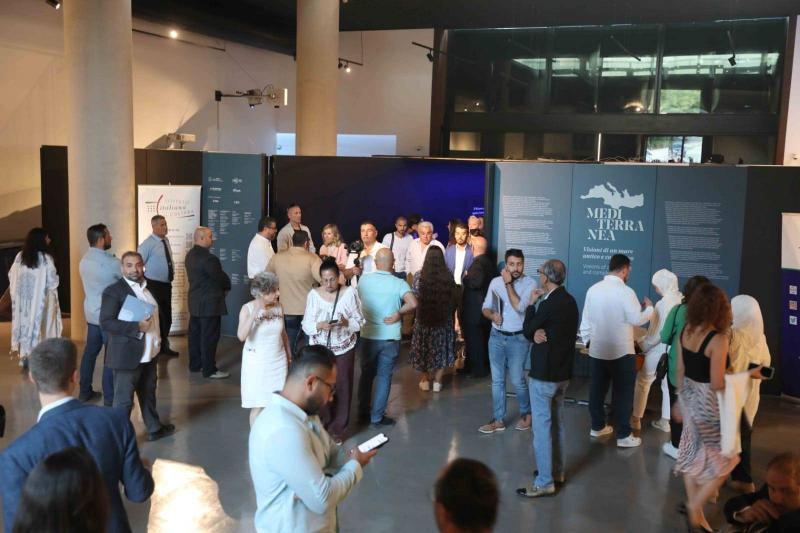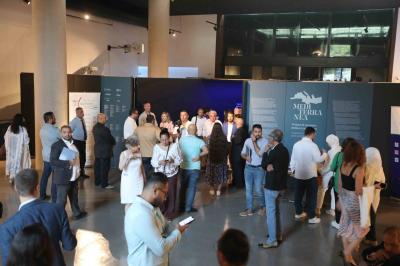The story of the Mediterranean Sea, its natural wealth, peoples, myths, and the current challenges it faces, has been embodied in an Italian initiative through an exhibition that offers a comprehensive view of the Mediterranean and all its details. This is accomplished through the display of satellite images, in collaboration with the Italian Space Agency (ASI), the European Space Agency (ESA), and others. Alongside numerous images and videos, the aim is to provide an overview of science and the arts, both past and present.
Italian Minister of Foreign Affairs and International Cooperation Antonio Tajani pointed out that the Mediterranean is the cradle of civilization and a crossroads for major trade routes, serving as a space for dialogue, interaction, and cultural exchange among the countries and peoples that border it. This is evidenced by the existence of more than 300 UNESCO World Heritage Sites. However, at the same time, it represents one of the most vulnerable regions to global challenges such as climate change, food security, conflicts, and refugee crises.
The head of the Italian Space Agency (ASI), Teodoro Valenti, explained that understanding the "sensitive environment" of the Mediterranean Basin is essential to enhance dialogue and cooperation among the region's peoples. Italian Ambassador Nicoletta Pombardieri, while discussing the exhibition hosted by the "NABU" museum, noted that Mediterranean countries face common challenges today and should look towards shared opportunities. She emphasized the need for a "common political agenda to address challenges and seize opportunities" to effectively mitigate the impact of climate change on the Mediterranean, which is severely affected by global warming, as well as to combat pollution that harms fishing and tourism. Pombardieri also highlighted the importance of cooperation "to manage migration flows" across the Mediterranean.
Satellite image data has shown unmistakable signs of ongoing climate change, global warming, declining rainfall, excessive heat waves, with prolonged drought alternating with heavy rainfall, as well as changes in marine habitats. Environmental risks, particularly plastic and other pollutants, have become a major concern for environmentalists and those invested in marine life safety, leading governments to allocate budgets and host international conferences to address such disasters, which will have a profound impact on human life.
Observers believe that stimulating deep thinking about the Mediterranean has become more than necessary, especially since its basin is shared by three continents, and it can only be rescued through sustainable development across all countries along its shores.




